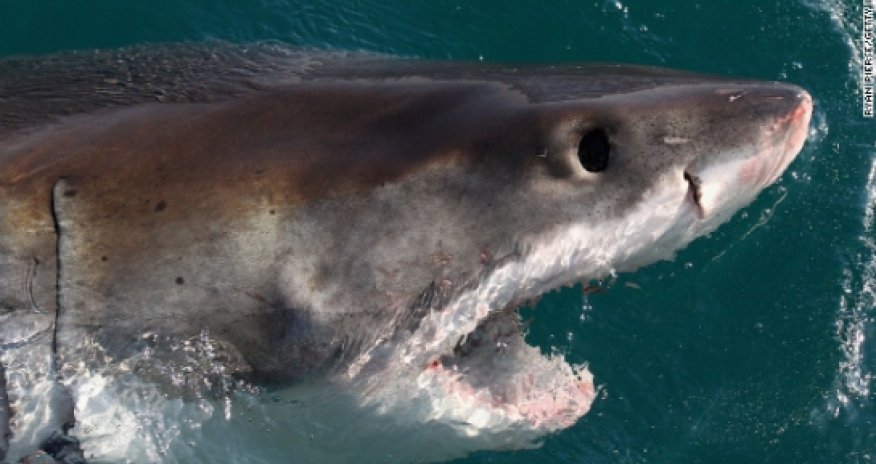Shark's 'man-eater' image undergoes makeover

Not since Mickey Mouse raised the profile of the common house rodent has an animal enjoyed such an extreme makeover, but sharks -- once the subject of guts-and-gore horror classics like Jaws and Deep Blue Sea -- have entered the new millennium as "beautiful creatures."No longer ominous, sinister and man-eating, the Great White shark is more likely to attract the sobriquets magnificent, powerful and beautiful online.The Western Australian government's decision last month to begin shark culling following a spate of fatal attacks brought out a vocal shark fan club and in Asia, consuming shark's fin, once a delicacy, is now likely to attract disapproving stares.Australian activists took the bait off drum lines to disrupt the cull and celebrity shark attack victim Paul de Gelder joined the chorus of disapproval."The ocean is not our backyard swimming pool," he wrote in his blog. "It's a wondrous, beautiful, dangerous place ... it and its inhabitants need protection from those that would do it harm."When exactly Australian beachgoers went from applauding to protesting a shark cull is unclear, but there's little doubt the one time monster of the deep has undergone a public relations revolution in recent years.Paul Hilton, a diver and photographer whose photo essay "Shark Fin" won a World Press Photo Award in 2012, says that greater knowledge about sharks and their place in the eco-system has raised greater awareness about the creatures."They've been around for 450 million years, they're streamlined, they're perfect for their environment -- it's pretty amazing to watch them swim through the water," Hilton told CNN. "A shark might not be my favorite creature either but it has its place and I know where it needs to be."He said stereotypes about sharks are so strong, they're difficult to shake even when diving next to them."Diving with Great Whites is surreal -- the first time you see the shark they come out of the depths but they don't look real; you see the gums and the teeth. They look like something straight out of Hollywood."They're obviously killing machines, but they have their place."Hong Kong-based animal activist Sharon Kwok, whose father was one of the founding members of the Hong Kong marine park Ocean Park, said changing perceptions about shark in China is a slow process but gaining traction."In Asia it's becoming quite common to have banquets without shark fin -- it's now the 'in' thing to do," Kwok told CNN. "I still occasionally hear people say 'I don't eat shark fin but I do eat shark meat' -- that tends to come from older people though."She said people under 40 years old in Hong Kong would not go out of their way to order shark fin anymore."If they're served it at a banquet, they might eat it because they don't want to kick up a fuss and embarrass the host. Me? I refuse it. I take pictures of it. I kick up a fuss."She said attitudes on mainland China were also changing and that the need for delicacies such as shark fin were not as culturally entrenched as many believe."Here's the thing -- I find that the mainland Chinese are so used to trying to get away with things, I think they've got half a mind frame expecting things to backfire anyway," Kwok said, adding that there was an "easy come, easy go" attitude in China.Researchers have found that attitudes and perceptions towards animals have even colored scientific studies, with large, dangerous or cuddly animals getting more attention in research papers than their more workaday counterparts.Looking through studies on some 2000 African animals between 1994 and 2008, South African researchers found 1,855 papers were about chimpanzees, 1,241 were on leopards and 562 about lions.The African manatee -- which has the unfortunate appearance of a portly and myopic old man -- ranked lowest with just 14 studies."A few species commanded a great proportion of scientific attention, whereas for many species information that might inform conservation is virtually nonexistent," researchers Morgan J. Trimble and Rudi J. Van Aarde said in their paper Species Inequality in Scientific Study."In the eyes of science all species are not created equal. A few species command a great proportion of scientific attention, whereas for many species information that might inform conservation is virtually non-existent."(CNN)ANN.Az
Similar news
Similar news




































 Photo
Photo 



 Video
Video 

